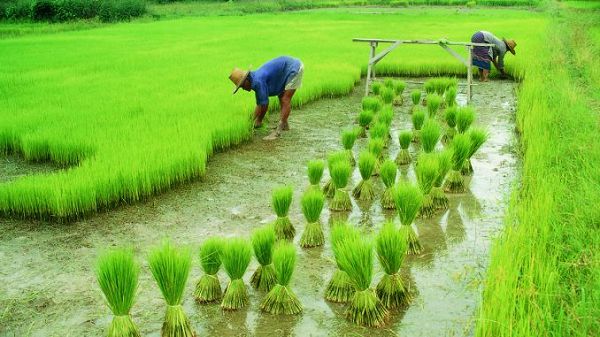
Time to invest in agriculture
In a previous article published in the February 14, 2019 edition of the Daily Graphic, the profitability of agriculture was illustrated with an investment of GH¢1 to finance operational variable costs of rice production, over 12 months, yielding GH¢2.27.
This was to demonstrate the investment opportunities and prospects in the agricultural sector in Ghana today.
Prospects that compare favourably with traditional investment products. As a follow up, this article explores starting a farm and how to manage it as an investment to maximise returns.
Advertisement
Investing in farming is different from traditional farming.
It means treating farming as a business; shifting from a ‘production first’ approach (prevalent in Ghana) to producing higher value products for the market, e.g., maize for industry.
This requires an understanding of markets, what customers/buyers want and how to meet their demands. Don’t focus on what you can produce. Focus on how to sell it.
Many farmers are unable to reap good returns because they fail to pay sufficient attention to what buyers and customers are looking for.
Profit
Your main goal of investing in a farm is making profit – when the difference between income and costs is a positive figure.
This is different from traditional farming where the objectives may be driven primarily by a need to meet family consumption needs first.
As a business, your farm buys inputs, uses them to produce agricultural products, markets those products and sells them for cash. In doing so, it must earn more income than the costs it incurs.
This requires an understanding of input and output markets: the type of inputs to purchase; where to buy the inputs; which markets to sell to; differences in prices and costs and decisions about technology, labour, transport and so on.
It is important to understand what drives farm profits: e.g., changes in price, yields, volumes and costs.
One ought to know how each key profit driver specifically affects profit.
So, you can make key decisions, particularly on returns on investment of time and money, with confidence.
You will, also, be able to deal with risks and build resilience. Your capacity to effectively manage each driver will determine your farm’s profitability and investment prospects under a range of conditions.
Costs
When analysing profitability, look beyond gross margins as was done in the illustrative case in the previous article.
These tend to include only variable operational costs such as cost of inputs.
All cost items, particularly large fixed costs such as land, finance and machinery allowance costs (depreciation) should be captured.
Other important costs are marketing costs (including efforts to identify and attract the best buyers) and management costs.
In Ghana many farmers tend to resign themselves to options for dealing with these costs that are immediately available which are often the most expensive.
Team
Finally, a farm management team is, perhaps, the most important factor often differentiating good farm investments from bad investments.
A good farm management team must focus on running the farm’s operations efficiently as a business.
Its skills set should include good planning, organisational and tactical capabilities enabling it to manage seasonal volatility and to enhance the profitability of the farm.
There are emerging services in agribusiness today that you can turn to for support to start, run and manage your business farm professionally.
You will sign a performance contract with the service provider to deliver results that are negotiated and mutually agreed on, including the size of the return on your investment.
And you choose when and how to become involved in running the farm or to even completely take over its operations.
So, when you consider investing in a farm, don’t just start a farm.
Start a business farm.
And to maximise the return on your investment, look for support to run the farm professionally.
The author is a project manager, a professionally trained and practicing business coach and agribusiness development specialist.
He is currently the Chief Executive of AgFocus Ghana Limited, an agribusiness development advisory firm.
He can be reached at [email protected] and on telephone number 0202110368.



